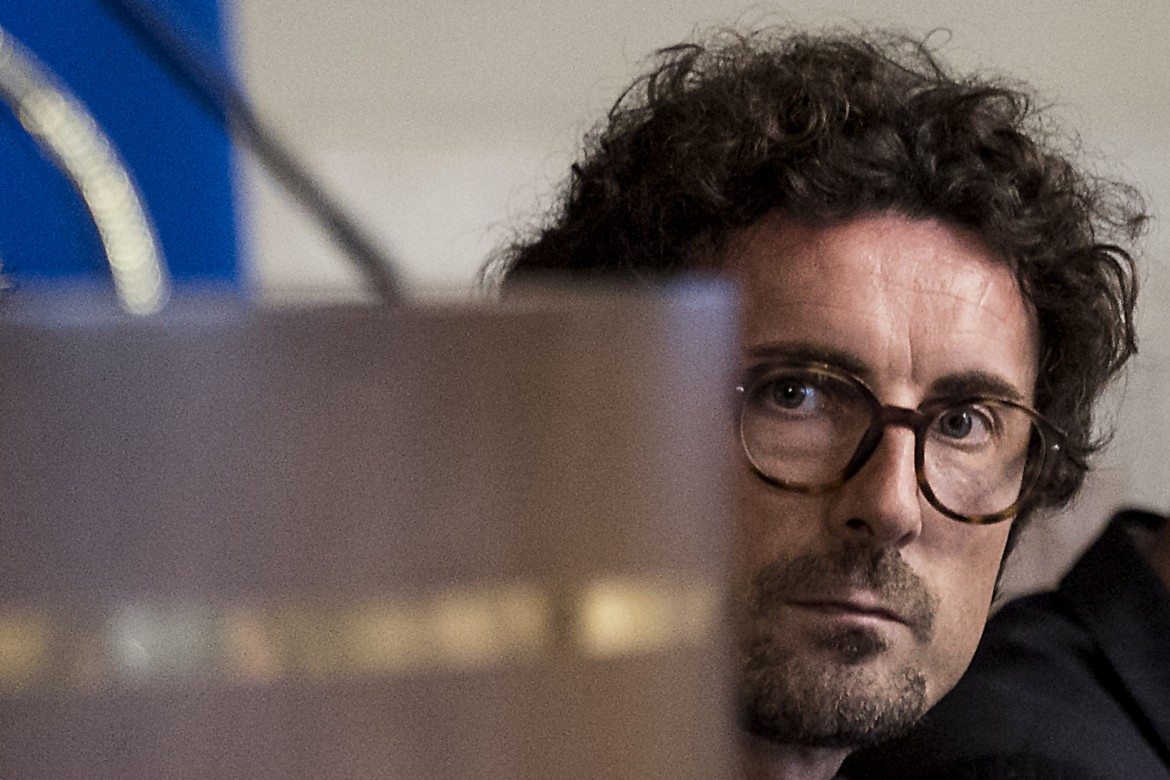Analysis
Italian transport minister wants to end the strikes after years of silence
Italian rail and air transport workers are striking this week after years of indifference from the Five Star-led transport ministry, who only called for dialogue to urge unions to 'act responsibly.'

After years of what seemed like indifference, Transport Minister Danilo Toninelli finally realized he should actually do something. But it took a national transport strike, which took place Wednesday, followed by an air transport workers’ strike, scheduled for Friday, by the unions FILT CGIL, FIT CISL and Uiltrasporti.
Just hours before Wednesday’s strike, Toninelli launched a public appeal in which he swore he had “the best intentions.” For this reason, the M5S minister asked the unions for “an act of responsibility regarding the strike,” i.e. a postponement, since, after all, he had just revealed himself to be “on your side and on the side of the workers you represent. We don’t have a magic wand, but we have made a commitment.”
The unions had just met with him Tuesday, along with representatives of all air transport unions and employers’ associations, on the matter of the air transport strike. On that occasion, the unions said that his invitation had come “late,” but that the proposal for a series of future meetings was still “useful.”
In these circumstances, however, mere professions of goodwill at the 11th hour are irrelevant. What is needed is real action, which has not arrived. For the first time in the history of the Republic, the unions say they haven’t even been given a meeting, as they write in the joint document, called “Let’s set the country in motion again,” approved by the joint leadership of the three unions on June 26. Up to this point, they wrote, Toninelli has never even deigned to acknowledge their repeated requests to start a “structured dialogue, not including the occasional meetings for the management of individual crises.”
The problems to be solved are many and serious. “There is no comprehensive policy for the sector. The government is failing to make choices,” says Stefano Malorgio of FILT CGIL. “The union makes its proposals, but the government does not listen, and then it’s the companies who make the choices. Italy, a country with a strategic position in logistics, is likely to be cut off altogether.” What is also missing is a structural policy aimed at preventing workplace injuries and deaths.
The sector needs more investment, more employment and clear rules against wage contraction—as well as the protection of the right to strike: “If we do not respect the law, we are immediately punished,” says Malorgio. “However, if companies violate their commitments made to workers’ organizations, nothing happens. In general, we need to start a discussion on allowing strikes for essential public services, taking into account the weight and representativeness of the unions involved.”
The state authority guaranteeing services during strikes had called for the cancellation of the eight-hour railway strike from 9:01 a.m. to 5:01 p.m. Wednesday, arguing that, given the fact that there have been many transport problems recently (in particular, an arson attack on the railway infrastructure near Florence on Tuesday, which disrupted railway services), the strike should be postponed to avoid “sacrificing citizens’ right to mobility”—a request the unions refused. However, pitting the rights of the workers against the rights of the citizens is highly unhelpful for understanding the reasons behind the strike and the political responsibility of the government which prompted the unions to organize it.
One union which is critical of the strike is the USB private transport worker’s union, according to which the strike today is “a power play” against the government (which the unions are certainly “free to engage in,” the USB says), which is also tied to the government’s acquiescence to the demands of private companies for “investments in great works that would be in the general interest,” which the USB supports. The USB is also unhappy about the fact that the three confederations used similar language to that of the Commission guaranteeing public services in case of strikes to disparage unions who don’t support the strike: “those dissenter unions, unaligned, guilty of ‘impeding’ ‘real’ strikes called by ‘real’ trade unions.”
The aforementioned Commission also demanded a reduction of the air transport strike called by Alitalia staff for Friday and joined by Anpac, Anpav, PNA, USB, Cub-Trasporti and Air Crew Committee, from 24 hours to just four, a decision which was officially approved by the Ministry after the length of the proposed strike was deemed “unacceptable.”
The Alitalia workers remain unhappy about the unwillingness of their employer to engage in dialogue: “Despite the great willingness shown by Minister Toninelli and his ministry, Alitalia showed no openness toward addressing the problems pointed out,” says the federation which brings together the pilots’ and flight attendants’ unions (FNTA).
Originally published at https://ilmanifesto.it/trasporti-toninelli-chiede-lo-stop-dello-sciopero-i-sindacati-invito-tardivo/ on 2019-07-24
